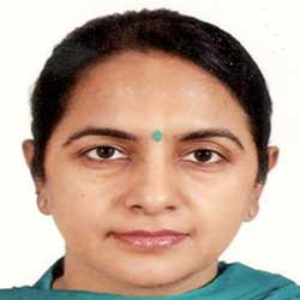Title : Role of Resin Supported Metal Nanoparticles as Catalyst in Organic Synthesis
Abstract:
In the near future catalysts will be playing pivotal role in reaching the targets of sustainability in industrial organic synthesis. Recent research has established the superiority of nanoparticles (NPs) as catalysts by facilitating numerous chemical transformations with high turnover numbers, high product selectivity, in green solvents using mild reaction conditions. High surface energy of NPs makes them thermodynamically unstable and prone to migration and coagulation during chemical reaction. It is imperative to stabilize these nanoparticles for successful application in fine chemical and pharmaceutical industry. Immobilization of nanoparticles on a solid support can enhance stability leading to high efficiency and recyclability. Traditional inorganic supports have been very useful for supporting catalyst in vapour and gas phase reactions but for liquid phase organic synthesis organic supports may turn out to be a better option.
In the present talk I elaborate the use of polystyrene resins (PSR) as a promising support for the metal nanoparticles. They are commercially available, chemically inert, and stable up to 400 °C, can be easily synthesized and modified to suit the reaction requirements, easily separated and reused. Supported nanoparticles of Au, Pd, Rh, Cu and Fe on the PSR have been used in C-C coupling, oxidation, click reaction, hydrogenation, carbonylation, heterocyclic synthesis etc. and the data is widely published in literature. However, some special instances where nanocatalysts are successfully used for sequential coupling reactions under microwave irradiations and selective oxidation reactions will be discussed. Further, the low metal loading required for the synthesis of efficient polystyrene catalyst reduces the likelihood of metal contamination in the ensued products.
Audience take-away:
- Audience can learn about the concept of nanoparticles synthesis and stability.
- They will be able to learn about the various organic transformation catalyzed by supported nanoparticles and the reaction conditions.
- How the supported nanoparticles are making organic synthesis green and sustainable which can be used in industry.



